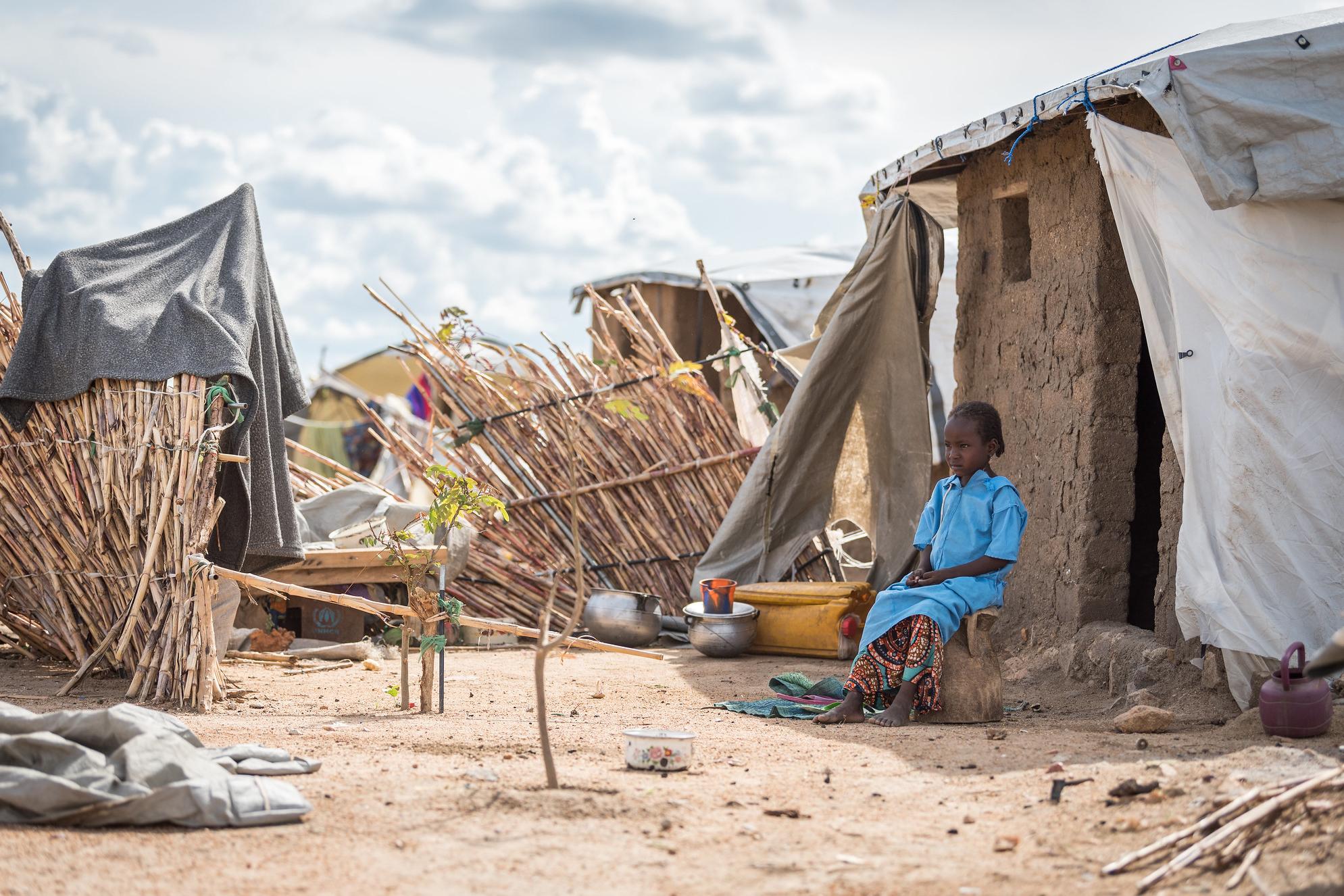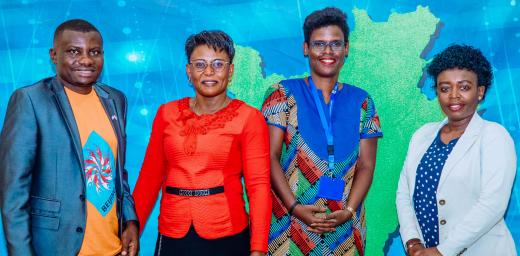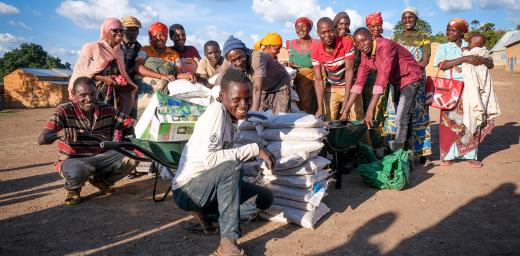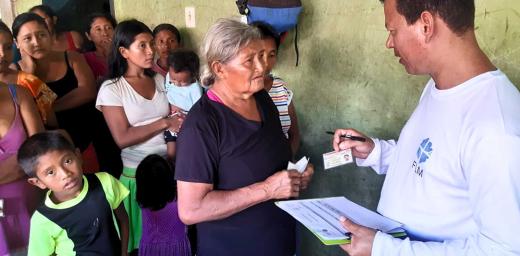Africa’s forgotten crises in focus

Minawao camp for Nigerian refugees, Northern Cameroon. The people living here have been displaced by Boko Haram terror in their countries. Photo: LWF/A. Hillert
World Service Regional Management Team Meeting in Cameroon
(LWI) - Serving people in need in the so-called forgotten crises in the French- and Portuguese-speaking countries of Africa are the subject of a Regional Management Team Meeting of The Lutheran World Federation (LWF) World Service in Cameroon this week. Under the theme “LWF in forgotten crises – delivering despite the challenges”, country management teams from the LWF programs in Angola, Burundi, Cameroon, Central African Republic and Chad will meet from 27-29 January in Yaoundé, Cameroon.
“This meeting is very important for us, as it allows us to reflect on the forgotten and neglected crises,” said Maria Immonen, LWF World Service director, in her greeting at the start of the meeting. “It shows our intention to support the programs in francophone and lusophone countries, to deliver a quality response, in line with the core humanitarian standards (CHS), with the goal to improve the lives of the people as laid out in our mission and vision.”
The work you do in Angola, Burundi, Cameroon, the Central African Republic and Chad is critical to those you serve and valued by all of us.
“The work you do is critical to those you serve and valued by all of us,” LWF General Secretary Rev Dr Martin Junge said in a video greeting. “Therefore, I am pleased to know that the theme of this meeting is not to dwell on the challenges you face, but to find ways of rising above them.”
Hosting refugees despite internal challenges
These five countries, despite being ranked low on the global development index, have hosted refugees and internally displaced people for decades, often in a context of civil unrest and political instability. They have struggled to re-integrate returnees while recovering from conflict. Access to basic services, land and livelihoods are challenging, as well as the presence of armed groups and the effects of climate change.
As it is more difficult to attract funding for support in these countries, fewer aid organizations are present, and those who choose to remain, like the LWF, face different challenges in serving people in need. “The number of crises increases, but the availability of funds diminishes,” World Service director Maria Immonen said. “Our work needs to be guided by the needs of the rights-holders and our response capacity.”
"Empower others for hope and a future”
The three-day meeting, which is preceded by technical workshops, will focus on resource mobilization and identifying common objectives and priorities. It will include voices from the field as well as LWF partners.
"I wish to let you know that you are not forgotten by LWF”, Junge emphasized. “We stand by you this week, and beyond, knowing that together we can empower others to have hope and a future.”
See the LWF General Secretary video greeting in French.





